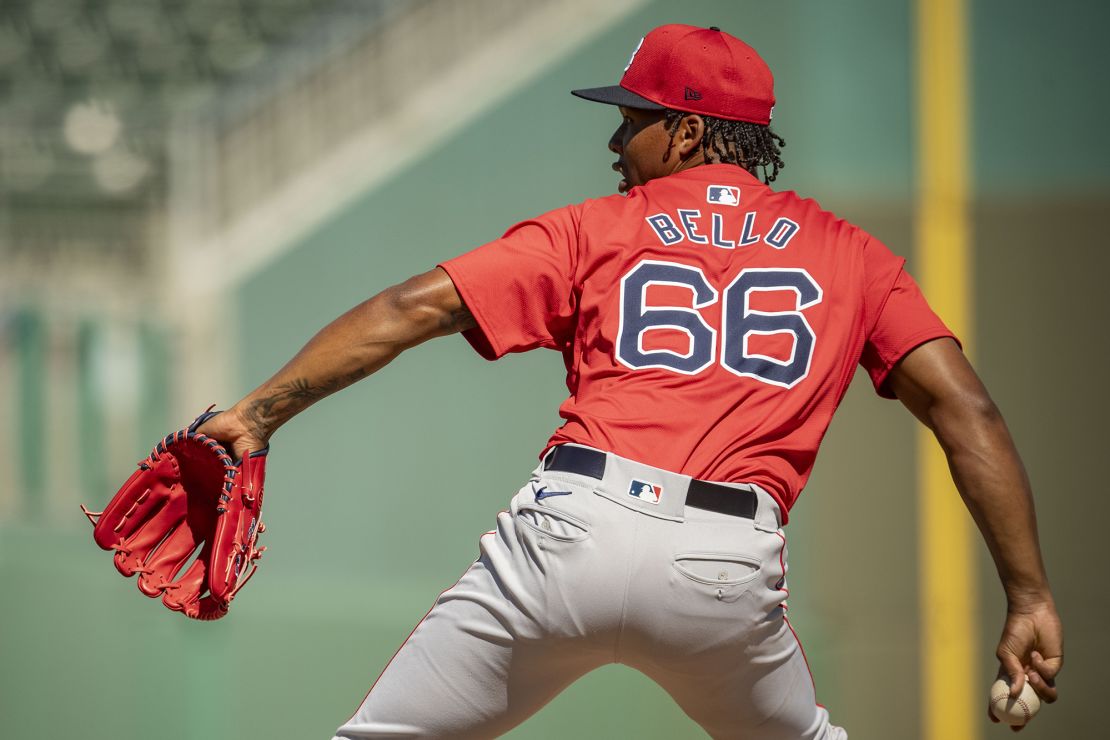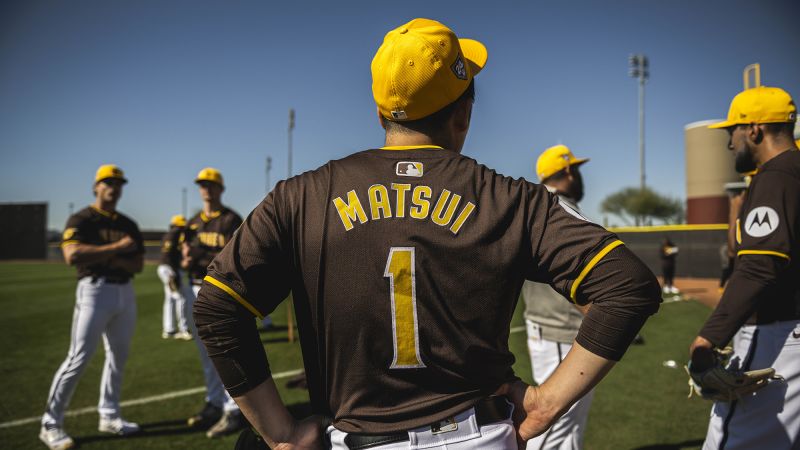Major League Baseball players will be wearing new jerseys this season. Some fans and players already hate them.
Fans are complaining that the jerseys, which were designed by Nike and manufactured by Fanatics, look cheap. The fabric is flimsy, they say. The MLB logo is lower down the back of the jersey. The lettering is smaller. Some of the team insignias and logos are no longer stitched directly onto the jersey, giving them less of a classy, throwback feel.
For example, the St. Louis Cardinals’ logo is no longer embroidered directly on the jersey. Instead, it’s embroidered on a patch. The Philadelphia Phillies’ logo is also no longer chain-stitched onto the jersey. The Mariners’ sleeve patch is no longer embroidered.
“I fully admit to being a jersey snob, but when these things reach the point where we are now, it is completely acceptable to expect more,” one Mariners fan said on X, ripping the new jerseys as “absolute trash.”
“When you consider what the options are, the lack of choices, and the price points things have reached, they are absolutely taking advantage of people,” he said.
“The look of it is like a knockoff jersey from T.J. Maxx,” a Baltimore Orioles player said. Some players have complained that there are fewer tailored options available for pants, and the players’ union has reportedly raised criticism of the jerseys to Nike and MLB. (The Major League Baseball Players’ Association did not respond to CNN’s request for comment.)
Die-hard sports fans pay close attention to teams’ uniforms. So when a team or league makes even the smallest of design tweaks, these traditionalists cringe. Especially in baseball, the nostalgia-tinged sport known as America’s Pastime.
“Sports uniforms are really symbolic for people. They foster a collective identity between fans, a city and players,” said Stephen Andon, an associate professor of sports communication at Montclair State University who studies sports team branding and merchandise. When a star player signs with a new team, the player holds up his jersey at a press conference. Teams retire their most important players’ jersey numbers.
“Uniforms are draped in big history. The expectation from fans is that the jersey has to carry that weight,” Andon said. “They expect major league quality from their garments, especially at the prices.”
Nike said in a press release that it worked with more than 300 players to design a jersey that was more breathable, lightweight and stretchy. Players also wore them during last season’s All-Star game, and Nike and MLB said they were well received. The company did not respond to CNN’s request for comment on the criticism.
Some players say they like the lighter feel of the new jersey.
“It feels like it’s going to breathe better,” Jason Heyward of the Los Angeles Dodgers said.
MLB Commissioner Rob Manfred also defended the new uniforms.
“They’re designed to be performance wear as opposed to what’s been traditionally worn, so they are going to be different,” he said. “I think after people wear them a little bit, they’re going to be really popular.”
Although these are Nike-designed jerseys, some passionate sports fans are directing their anger online at Fanatics, which has become a target for fan ire as it has gained more control over the sports apparel industry.
Fanatics has exclusive licensing deals with the NFL, MLB, NBA, NHL and other leagues to sell jerseys and merchandise. If a fan wants to buy a player’s jersey, a t-shirt or a team hat online or in stores, chances are it’s sold by Fanatics.
And Fanatics is also taking control of the sports memorabilia market. It bought trading card giant Topps and Mitchell & Ness, which makes throwback jerseys.
Sports fans have complained about jerseys and other gear they bought from Fanatics with the wrong name or number, fabric that falls apart after one wash, and incorrect team colors.
In 2019, MLB, Nike and Fanatics announced a 10-year partnership, and Fanatics began manufacturing on-field player uniforms for Nike in 2020, essentially serving as a subcontractor based on Nike’s design specifications, according to Paul Lukas, a longtime sports reporter and founder of Uni Watch, a website that focuses on sports uniform design.

“What the players wear is dictated by Nike,” Lukas said.
Still, some fans are lashing out at Fanatics for its growing control over the sports merchandise market, the quality of some of its merchandise and high prices. Fanatics was valued at $31 billion in 2022.
“There are already tensions with Fanatics and their overall presence,” said Stephen Andon. “This is joining that narrative.”
Some NHL fans, like baseball fans, are worried about Fanatics’ deal with the NHL to produce authentic jerseys players wear in games because of concerns about quality, limited selection and prices. But game uniforms will be manufactured in the same Canadian factory that previous jersey-makers Adidas and Reebok used.
Fanatics declined to comment to CNN.
Andon said fans’ anger over the quality of sports merchandise is another example of perceptions about shrinkflation — people paying more for less.
“Here it is filtered into sports, which many people love and care deeply about,” he said.
In sports, fans are also facing a surge in ticket prices that has priced out many people from affording a trip to a regular season game.
In 2023, the average NFL ticket climbed 8.6% to $120, according to Team Marketing Report, a sports market research company. It costs $631 to take a family of four to a game and buy food, two souvenirs and a parking spot.
MLB tickets increased 3.5% to an average of $37 in 2023. It cost $266 to take a family to a game.
Many teams have built new stadiums and arenas or remodeled existing facilities in recent decades. These new stadiums, many of which were taxpayer funded, have been built with reduced seating capacity than previous venues, allowing teams to charge higher prices.
Read the full article here




